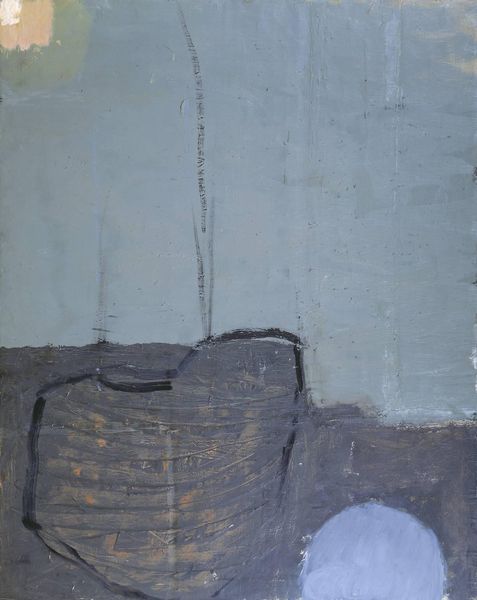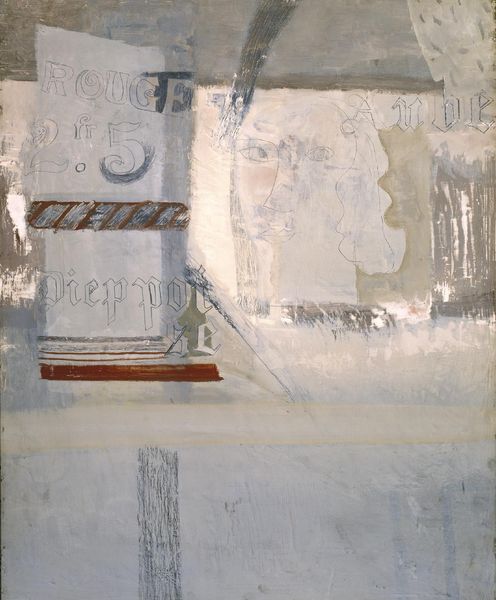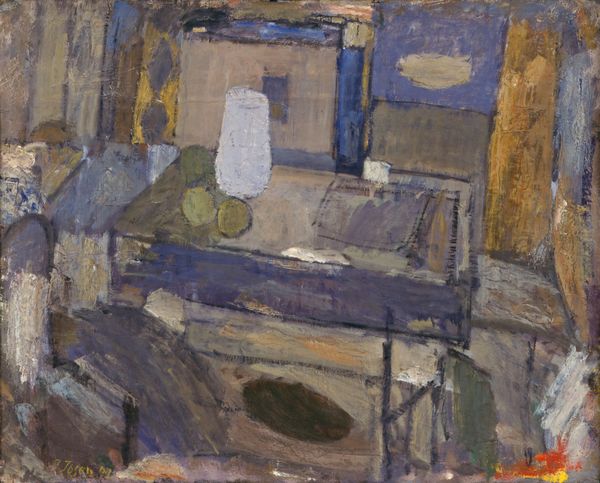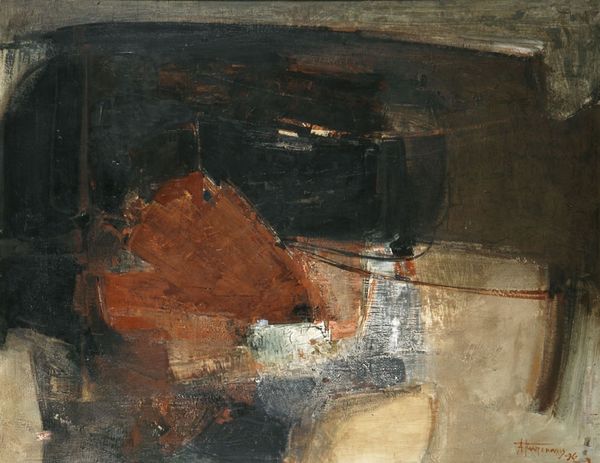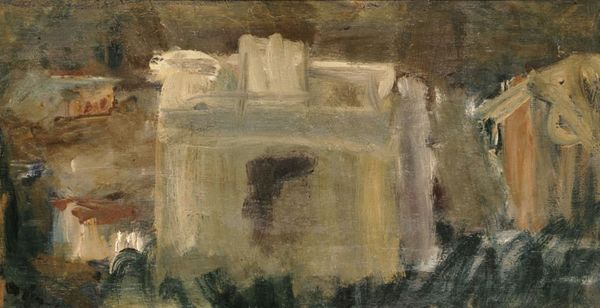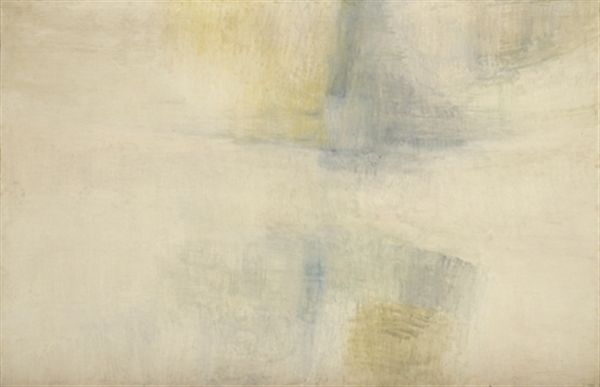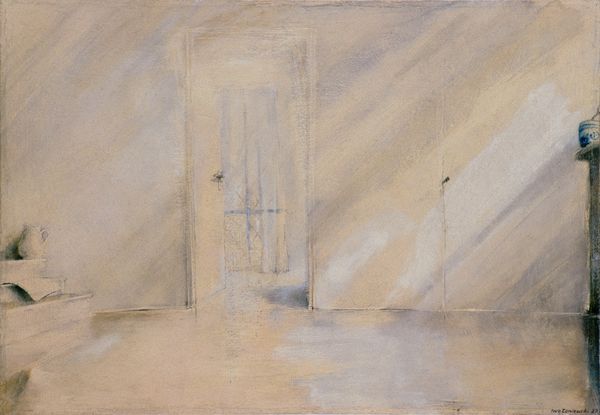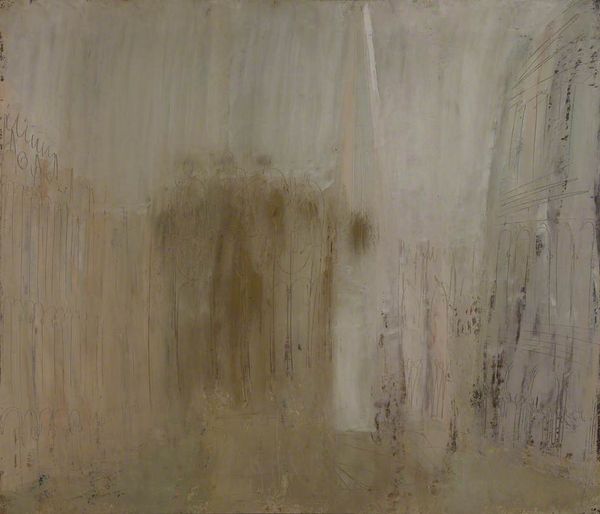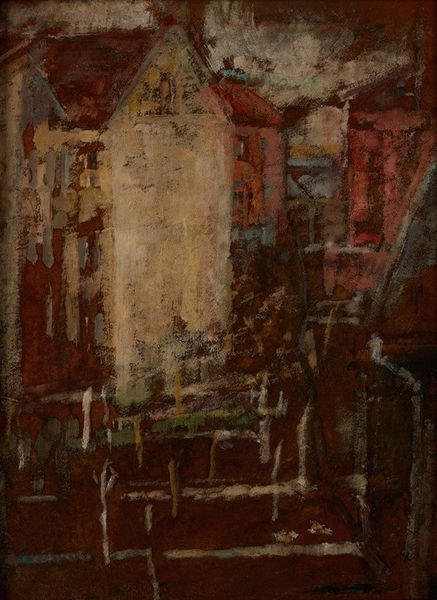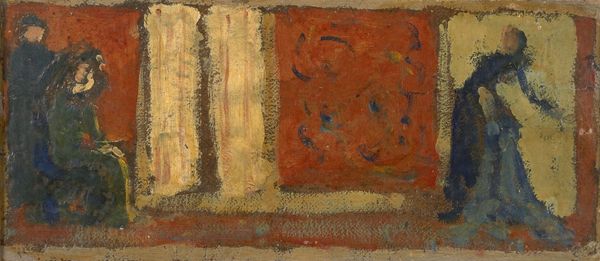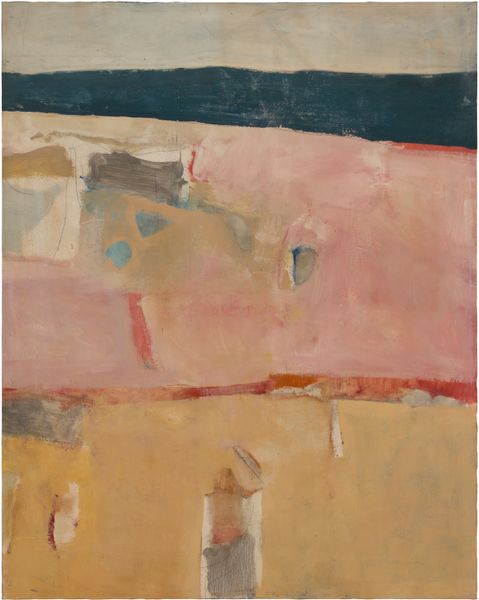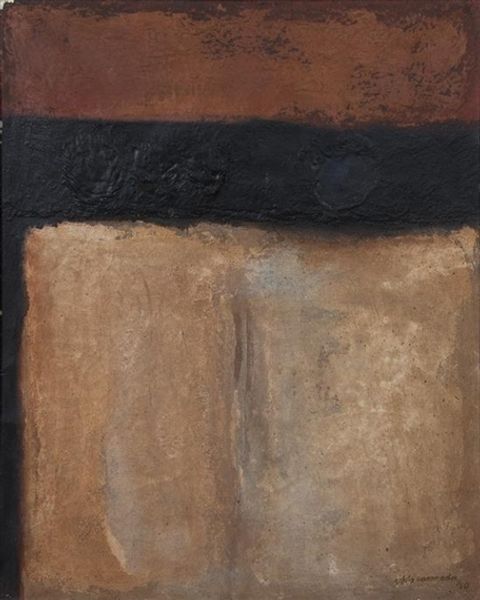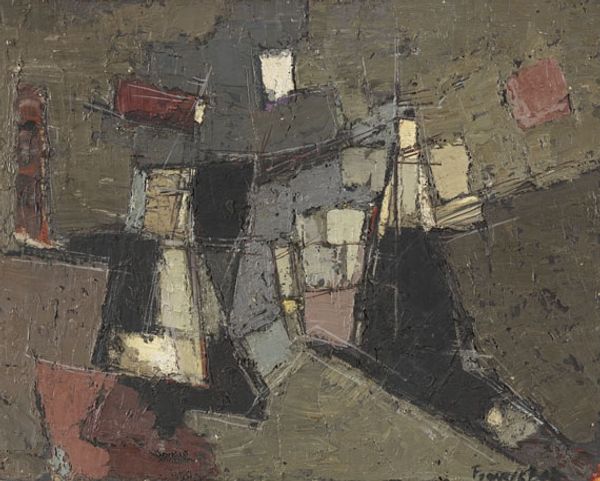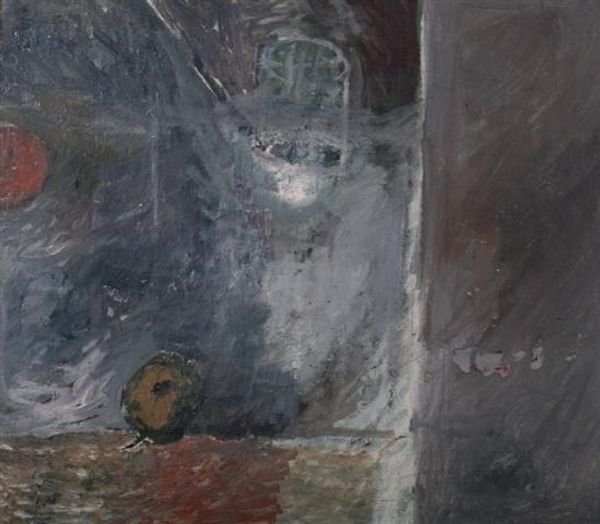
Dimensions: support: 968 x 917 x 24 mm frame: 1185 x 1139 x 70 mm
Copyright: © The estate of Prunella Clough | CC-BY-NC-ND 4.0 DEED, Photo: Tate
Editor: This is Prunella Clough's "Cooling Tower II," from the Tate collection. I'm struck by its muted palette and almost ghostly depiction of industrial architecture. How do you interpret this work, especially in relation to its social context? Curator: Clough's painting invites us to consider the complex relationship between industrial progress and its impact on the environment and society. Do you see how the subdued tones might reflect a critical commentary on the often-overlooked consequences of industrialization, particularly on marginalized communities? Editor: That's interesting, I hadn't thought of it that way. It makes me consider the ethics of representation in art. Curator: Exactly. It's a quiet yet powerful statement, reflecting on the socio-political implications of such structures. Editor: I see that now. Thanks for helping me to see it in a new light. Curator: My pleasure, it's rewarding to explore these intersections of art and activism.
Comments
tate 9 months ago
⋮
http://www.tate.org.uk/art/artworks/clough-cooling-tower-ii-t00376
Join the conversation
Join millions of artists and users on Artera today and experience the ultimate creative platform.
tate 9 months ago
⋮
One of Britain's most respected post-war painters, Prunella Clough developed a highly personalised visual language that hovered between abstraction and figuration. She frequently depicted urban or industrial motifs derived from her London environment, and she would set these against a soft, indeterminate background. The imposing tower structure of 'Cooling Tower II' has been simplified to its most basic form. It dominates the sky and dwarfs the smaller crane feature sitting to its right. However, the emphatic horizon line, characteristic of CLough's work, checks the overwhelming presence of the tower and balances the painting. Gallery label, September 2004
